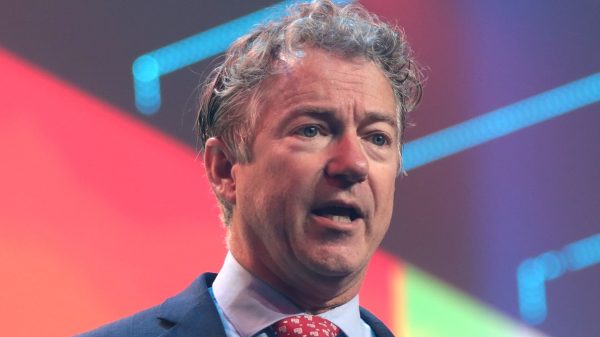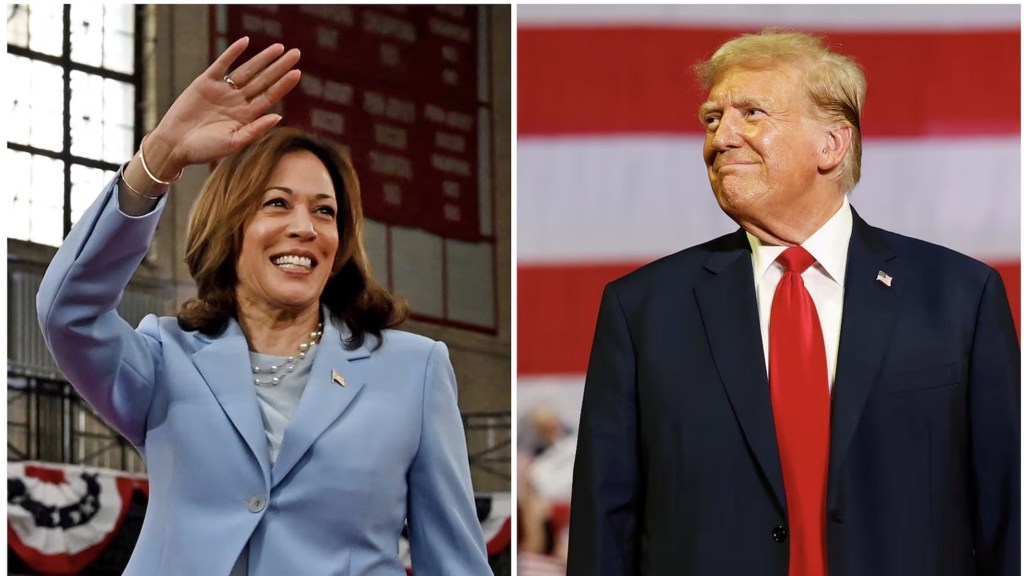
Enda Curran | (TNS) Bloomberg News
The U.S. election on Tuesday will have far-reaching economic consequences, ranging from how Americans are taxed to how the country trades with the rest of the globe.
Democrat Kamala Harris and Republican Donald Trump present starkly different policy visions that will also shape the flow of immigrants into the labor market and make-up of the energy supply that powers industry. Their differences will influence the prices consumers pay for everyday goods and the borrowing costs households and businesses face on debts.
Much will depend not only on who wins the White House but also which party controls Congress. That’s especially so for tax proposals, which must be approved by lawmakers. Still, the president has independent authority to take sweeping actions, particularly on trade and immigration.
Here’s a look at five of the most significant economic impacts of the election outcome.
Taxes
Trump has put lowering income taxes front and center of his campaign. He’s promised to extend tax cuts passed during his first term — otherwise set to expire at the end of next year — and also further reduce corporate income taxes. On the campaign trail, he’s embraced additional ideas for tax cuts, including ending taxation of tips, overtime pay and Social Security benefits. He claims the revenue loss would be partially offset with new tariffs on imported goods.
Harris has only committed to extending the 2017 Trump tax cuts for those earning less than $400,000 and says she would roll back the expiring tax cuts for the richest Americans. She has pledged to raise the corporate income tax rate and impose a minimum tax for billionaires. She would expand child tax credits for families and offer breaks for smaller businesses.
The impending expiration of the 2017 tax cuts likely forces action on tax legislation next year. Neither party wants to take responsibility for tax increases on the middle class, so tax policy will dominate Congress in the next session.
The make-up of Congress will be critical to the outcome. An election sweep in which the same party wins control of the presidency, Senate and House would clear the way for a partisan plan. But divided government would would force a negotiated deal.
Trade
The biggest potential shock to business would come from Trump’s plan to sharply raise tariffs to try to force manufacturers to move production to the U.S. The Republican has called for minimum tariffs between 10% to 20% on all imported goods, rising to 60% or higher on imports from China.
Bloomberg Economics projects the maximal version of the plan, with the across-the-board tariff at 20%, would lower U.S. GDP by 0.8% and add 4.3% to inflation by 2028 if China alone retaliates. If the rest of the world also retaliates the blow to growth would be greater, lowering U.S. GDP by 1.3%, but would add just 0.5% to inflation because of the weakened US economy.
Harris has signaled broad continuity with the trade policies of the Biden administration and also has warned Trump’s proposals would amount to a “national sales tax” on consumers.
Both candidates have said they would block a proposed Japanese takeover of United States Steel Corp., signaling a consensus on a hawkish attitude to foreign investment in sensitive sectors. The president has considerable unilateral authority to act on trade policy.
Immigration
Trump has promised the biggest deportation of unauthorized migrants in history, a move that would immediately hit sectors such as construction, hospitality and retail that rely heavily on immigrants — with both legal and illegal status in the country. Economists say such a move would jolt the labor market, disrupt business and cost billions of dollars to carry out.
Harris would take much more modest steps. She promised to reintroduce legislation clamping down on illegal border crossings, a policy that would require bipartisan support in the event of a divided Congress after the election. The president has wide-ranging powers on immigration.
Energy
Trump has adopted the motto “drill, baby, drill.” He promises to cut down on regulation of oil, natural gas and coal production and promises to make more federal land available for fossil fuel production, arguing that will bring down costs. The former president also says he will “terminate” Biden administration policies that offer subsidies to boost green energy production.
Harris leans into a clean-energy transition. The vice president has pledged to lower household energy costs but her agenda is committed to tackling the climate crisis through clean energy and protecting public lands.
Deficits
If either candidate has their way, U.S. budget deficits will go up, analysts say, but the jump would be nearly twice as big under Trump. Larger deficits typically mean higher interest rates and borrowing costs, for both households and businesses.
Harris’s campaign plans would increase the deficit by as much as a cumulative $3.95 trillion over a decade while Trump’s would drive up the deficit by as much as $7.75 trillion, according to estimates by the Committee for a Responsible Federal Budget, a nonpartisan fiscal watchdog group.
So far, investors appear sanguine on the outlook for U.S. fiscal policy regardless of who wins. Appetite for purchasing Treasury bonds has held up even as the U.S. annual deficit for the fiscal year ended Sept. 30 rose to $1.83 trillion from $1.7 trillion the previous year.
Still, some analysts warn that an unsustainable fiscal trajectory risks sparking market volatility. U.S. debt is already set to reach 99% of GDP this year. Bloomberg Economics estimates that Trump’s tax cuts could take it to 116% in 2028, and even under Harris’ more conservative proposals it would rise to 109%.
A divided government, in which the opposition party controls at least one chamber of Congress, could rein in deficits since Congress must approve both spending and taxes.
_____
©2024 Bloomberg L.P. Visit bloomberg.com. Distributed by Tribune Content Agency, LLC.
Originally Published:

















































